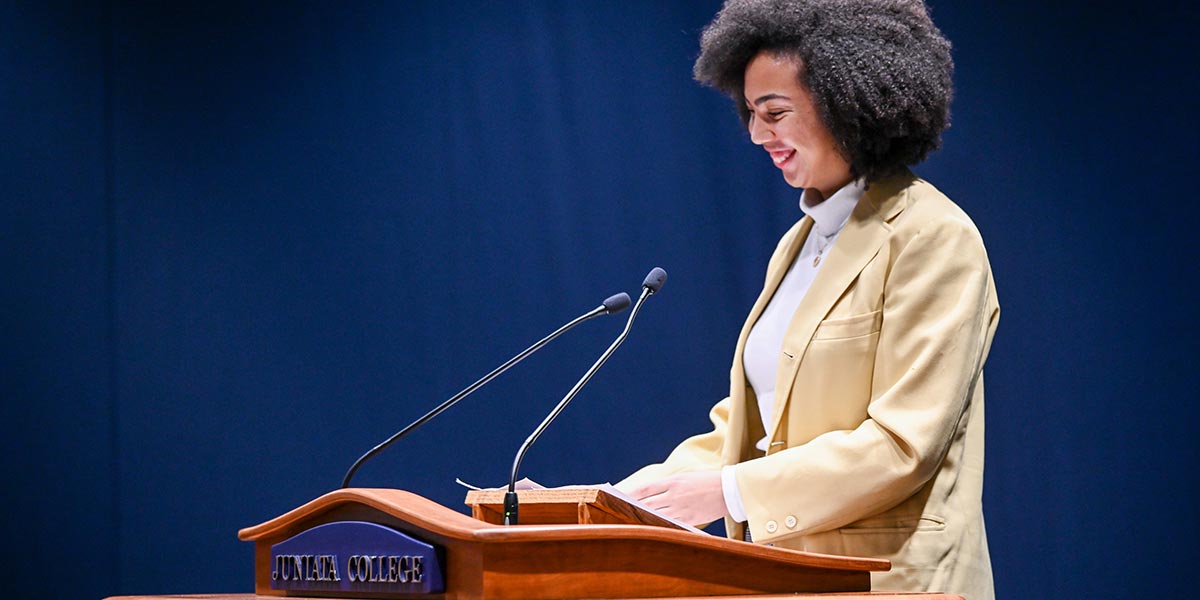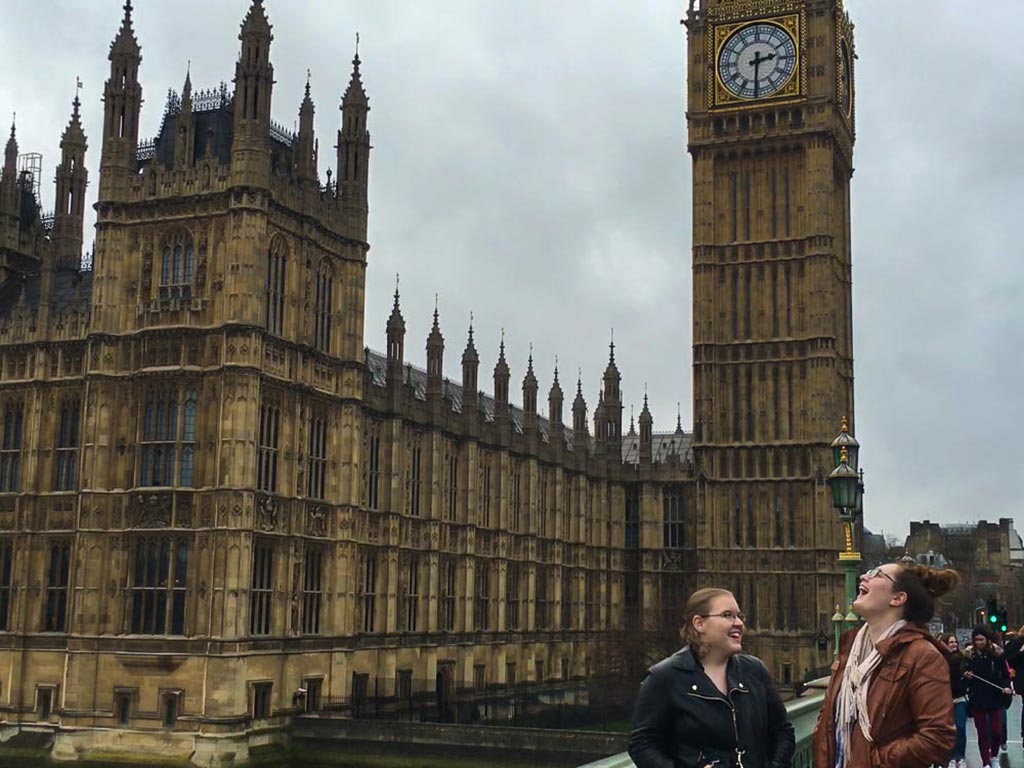
Juniata's Communication students are inspired to graduate as effective communicators across all professions. Our Program of Emphasis (POE) is created by professors who focus on theories, methods, and practices within the field of Communication. We challenge students to go beyond "obvious everyday talk" and encourage students to think about who they are and find their voice through community-engaged learning, critical analysis, and audience adaptation in speaking and writing.
Juniata's Communication students are inspired to graduate as effective communicators across all professions.

Juniata's Communication students are inspired to graduate as effective communicators across all professions. Our Program of Emphasis (POE) is created by professors who focus on theories, methods, and practices within the field of Communication. We challenge students to go beyond "obvious everyday talk" and encourage students to think about who they are and find their voice through community-engaged learning, critical analysis, and audience adaptation in speaking and writing.
Juniata's Communication students are inspired to graduate as effective communicators across all professions.

Juniata's Communication students are inspired to graduate as effective communicators across all professions. Our Program of Emphasis (POE) is created by professors who focus on theories, methods, and practices within the field of Communication. We challenge students to go beyond "obvious everyday talk" and encourage students to think about who they are and find their voice through community-engaged learning, critical analysis, and audience adaptation in speaking and writing.
Juniata's Communication students are inspired to graduate as effective communicators across all professions.
Why Study Communication at Juniata?
In a world where effective communication within, between, and from organizations (from pharma to financial services) moves at lightning speed, top communication graduates may choose from a variety of career options. The study of communication at Juniata prepares students to grab these future success opportunities.
Why Study Communication at Juniata?
In a world where effective communication within, between, and from organizations (from pharma to financial services) moves at lightning speed, top communication graduates may choose from a variety of career options. The study of communication at Juniata prepares students to grab these future success opportunities.

Find Your Purpose

Find Your Purpose

Find Your Purpose

Find Your Purpose
Explore Your Interests

Explore Your Interests

Explore Your Interests

Explore Your Interests


Develop Your Professional Practice

Develop Your Professional Practice

Develop Your Professional Practice

Develop Your Professional Practice
Study Abroad
Take an active role in your education while studying abroad. Juniata has established strong exchanges with universities throughout the world. Learn more about study abroad programs in communication here.
 skip to content
skip to content










